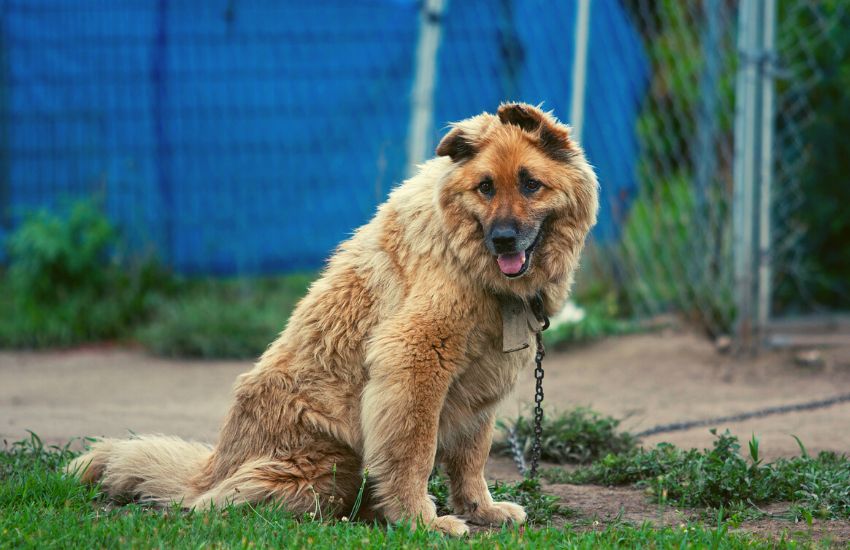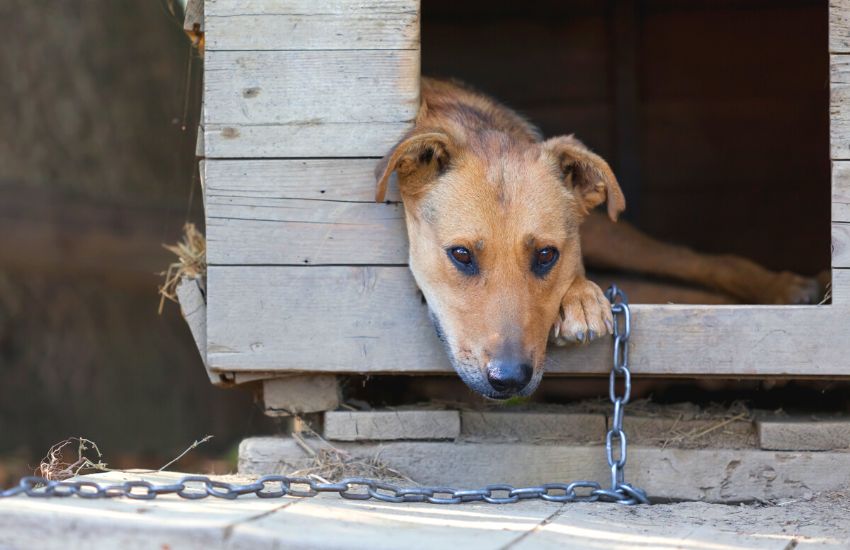shelter pets in need
Each order helps pets in need

There is quite nothing as inhumane as seeing a chained dog being confined for long periods of time. The practice of dog chaining among our pets remains a threat to their well-being. Dog owners need to be informed of tether laws and proper practices both indoors and outdoors. Learn more about these here.
Tethering is a practice that refers to tying up or chaining an animal (often a dog or a cat) to a stationary object for a long period of time. While some owners may have their reasons as to why they do this, it is important to be aware of the harmful impact this does on an animal’s physical and mental well-being.
Tether laws are a kind of animal law that was created in response to these criticisms. Although the specifics may vary depending on the jurisdiction, in general, these laws focus on ensuring that animals are not brought to unnecessary harm or suffering.
For example, many ordinances prohibit the duration in which an owner can tether an animal. There may also be requirements regarding the type of tether used as well as its length.
Some places may even prohibit certain types of tethering altogether. For example, in many American states, it’s completely illegal to tether animals outside overnight or during extreme weather conditions.
Similar to these cases, metal chains or other types of heavy restraints are banned altogether for animal use, as they may cause debilitating injuries to pets.
Enforcement of these laws may take many forms. In general, people are assigned by the government to investigate reported cases of animal abuse.

It doesn’t matter if you live in the city, country, or suburbs. Most animal lovers have seen the sad sight of dogs tethered to something by a short chain or rope…often without any shelter and exposed to the elements. It’s a sad fact that, for whatever reason, some people leave their dogs chained up outside 24 hours a day.
What can a concerned animal lover do to help these dogs? The amazing folks behind the website unchainyourdog.org have compiled tons of great information on the issue, including advice on how you can help. Here are some of their tips if you see a dog that is chained:

Chaining up your dog can have a severe impact on their canine lifetime health. For one, their necks are more likely to get injured. They will also be more prone to itches and, consequently, infection. This is particularly true for owners who use large and heavy chains.
Moreover, tethered dogs are often kept outside and are more at risk of fleas, mosquitoes, and other parasites. They're also more exposed to variations in the weather, such as cold, rain, or heat.
Furthermore, confinement harms your puppy's ability to interact properly with people. Dogs need an adequate amount of social enrichment in order to be happy, and confining them can make them depressive, anxious, and, even worse, become highly aggressive.
Due to how tethers work, there's also the underlying threat of your pups choking on them. They may also keep overturning their feedings and water bowls and thus make cleaning up harder.
With that being said, it is important to show your support for all dogs who fall victim to these acts of animal cruelty. Take up your favorite dog shirt and advocate for animal welfare now!
No. Even if there are no tether laws in your area, it is important to be mindful of the harmful effect this practice has on animals. They can develop injuries that last throughout their lives.
Even though the collar can form some sort of protection for the neck, it should ultimately be avoided as it places undue pain and discomfort to the muscles.
Chaining is usually referred to in cases wherein a heavy restraint is used to keep an animal confined for long periods. Tether is more often used when referring to the use of lighter restraints such as ropes and only for short periods.
Leave a comment